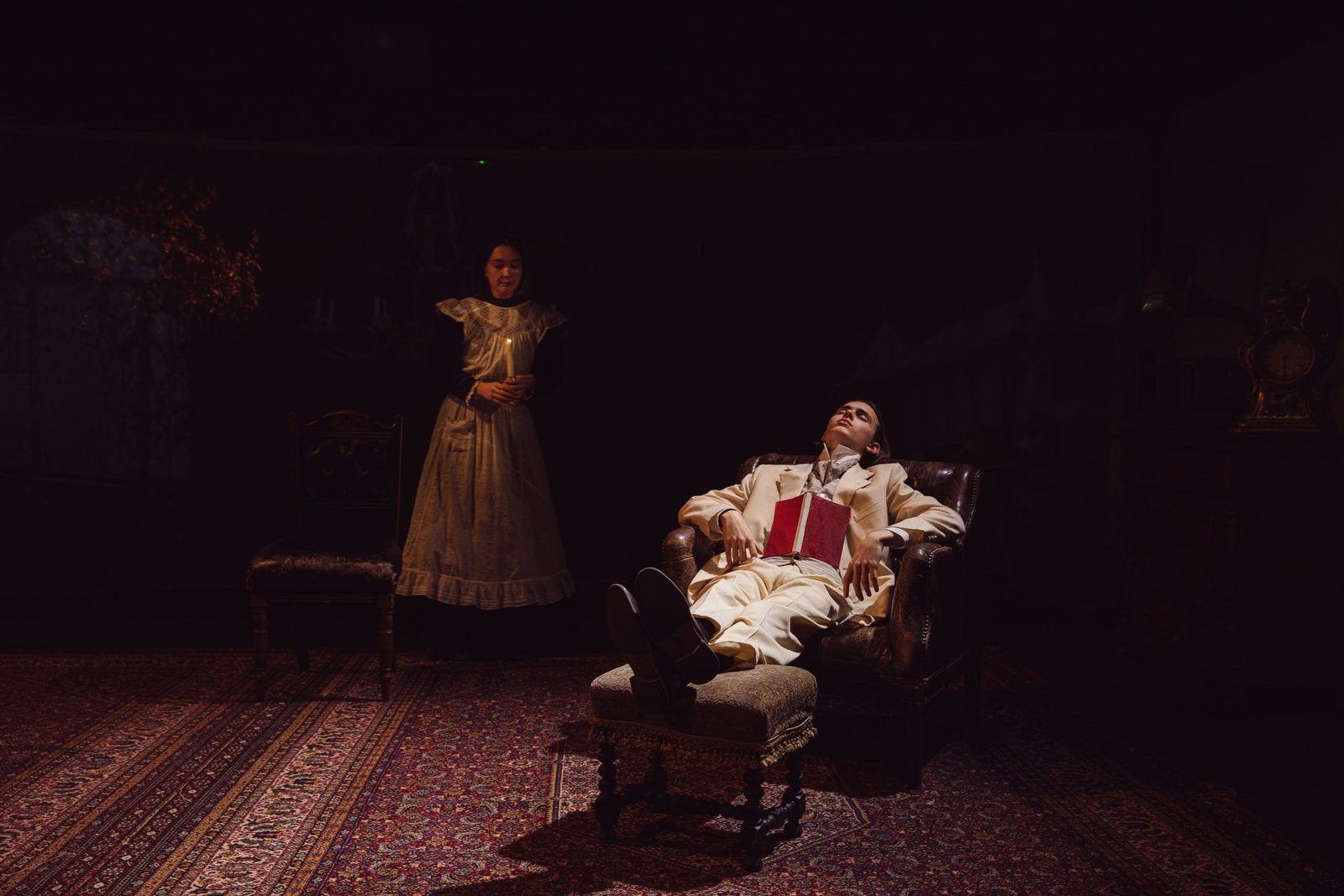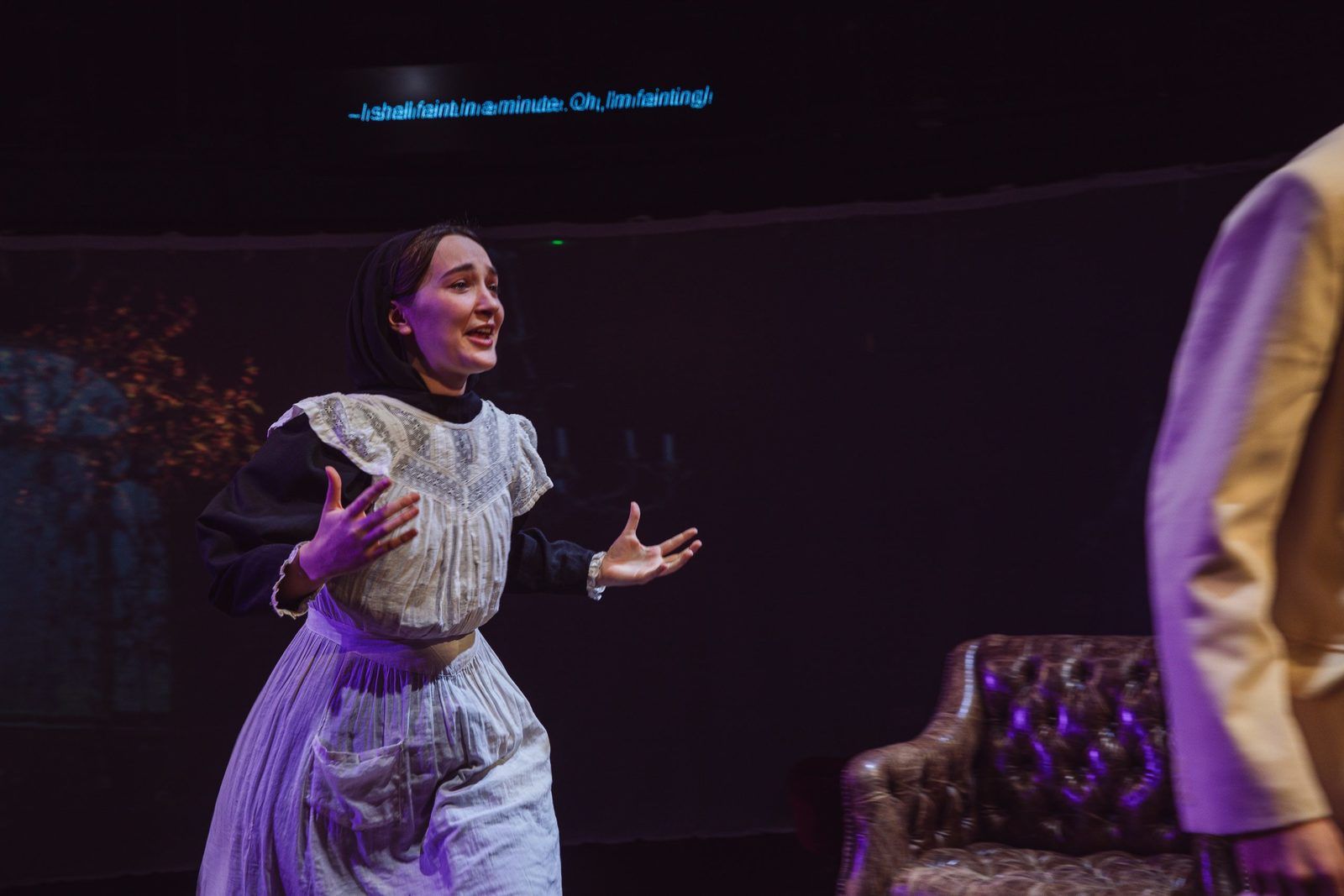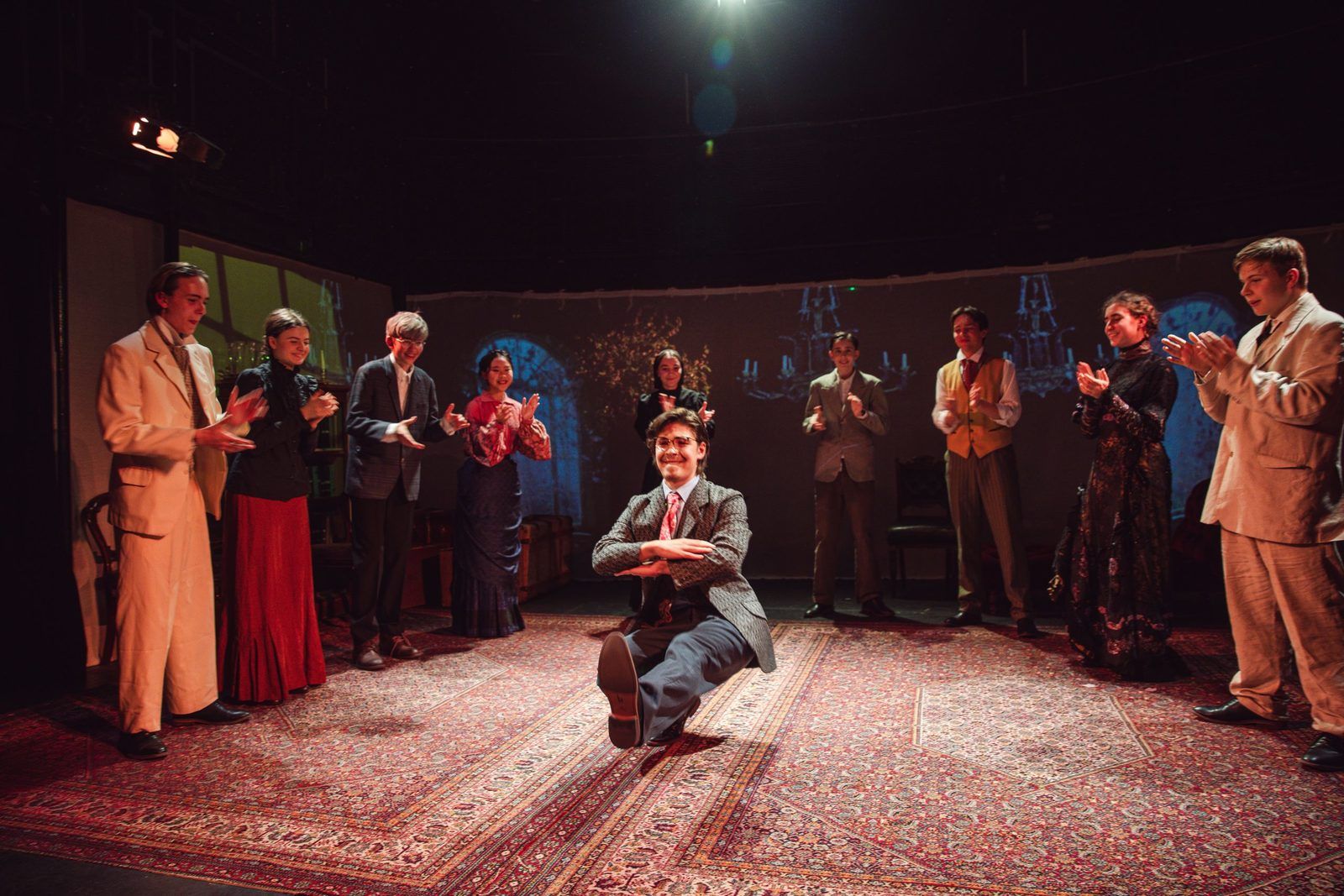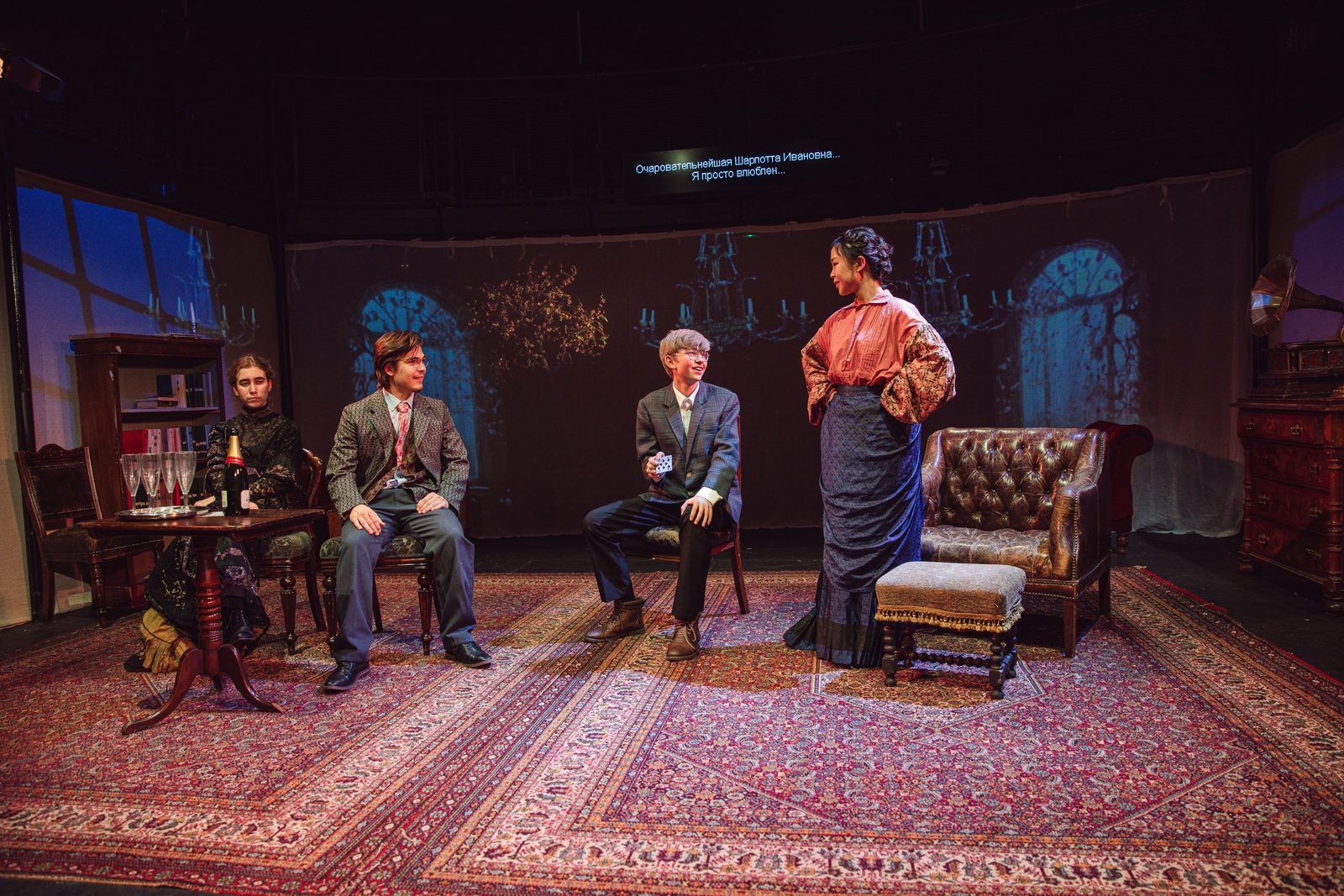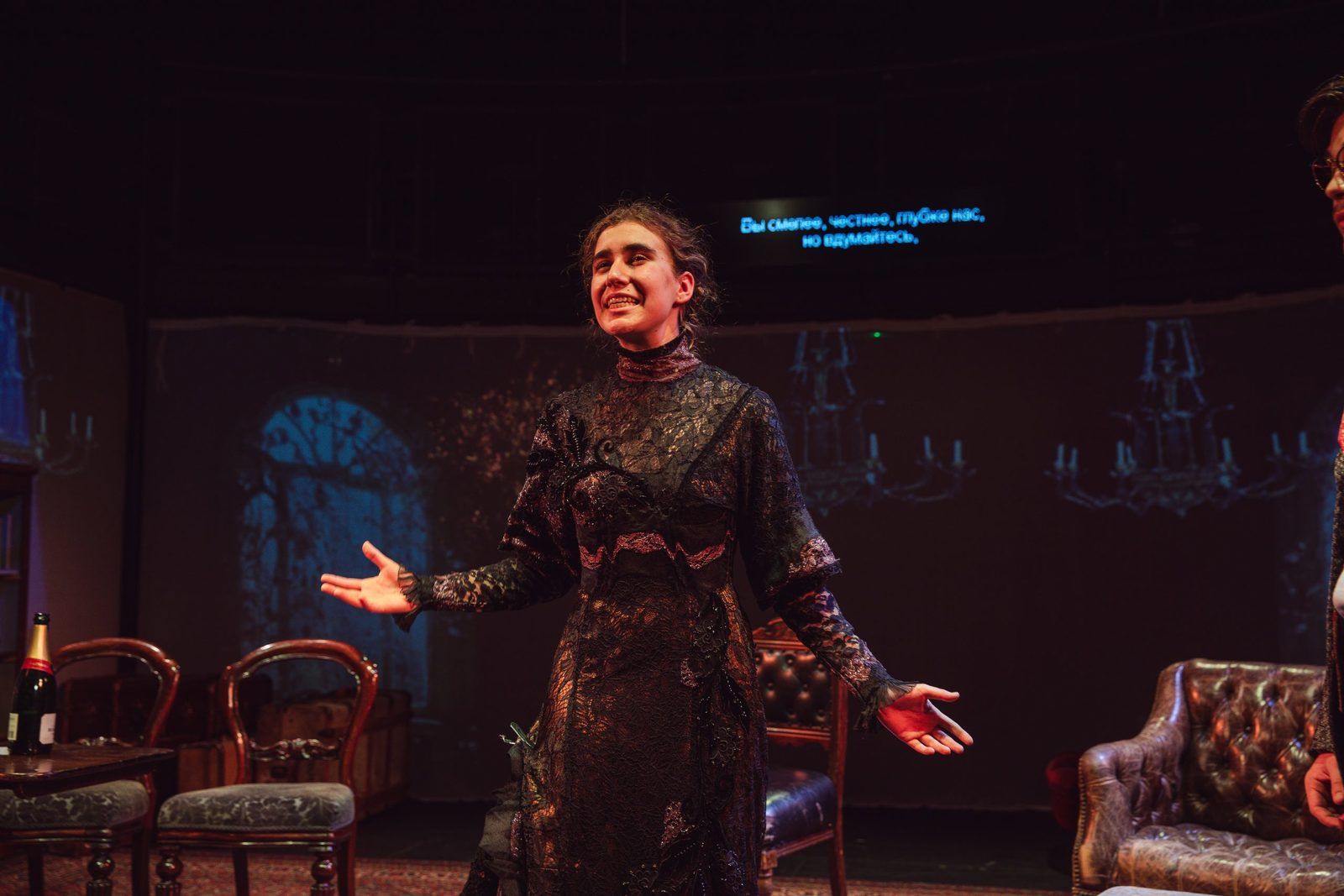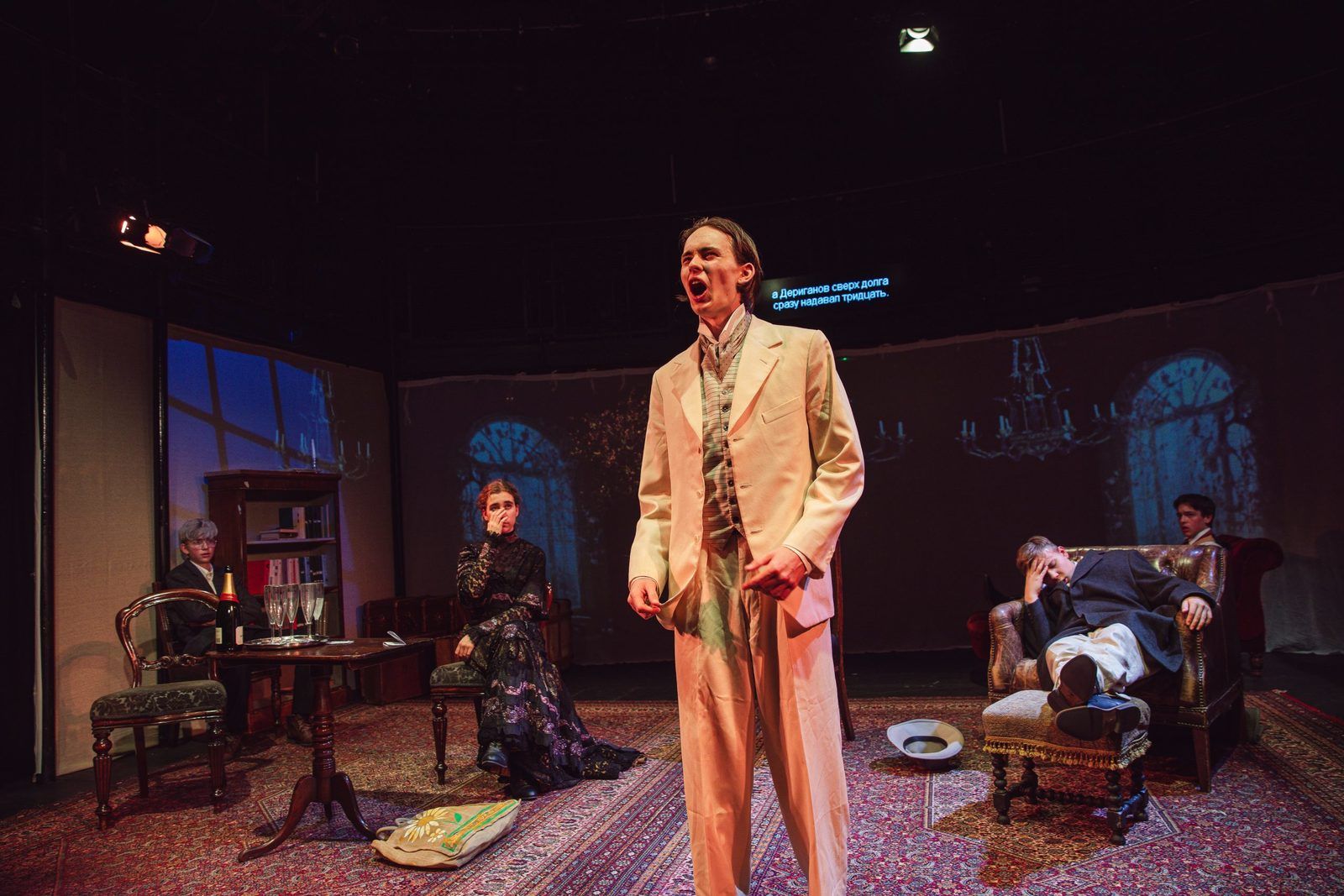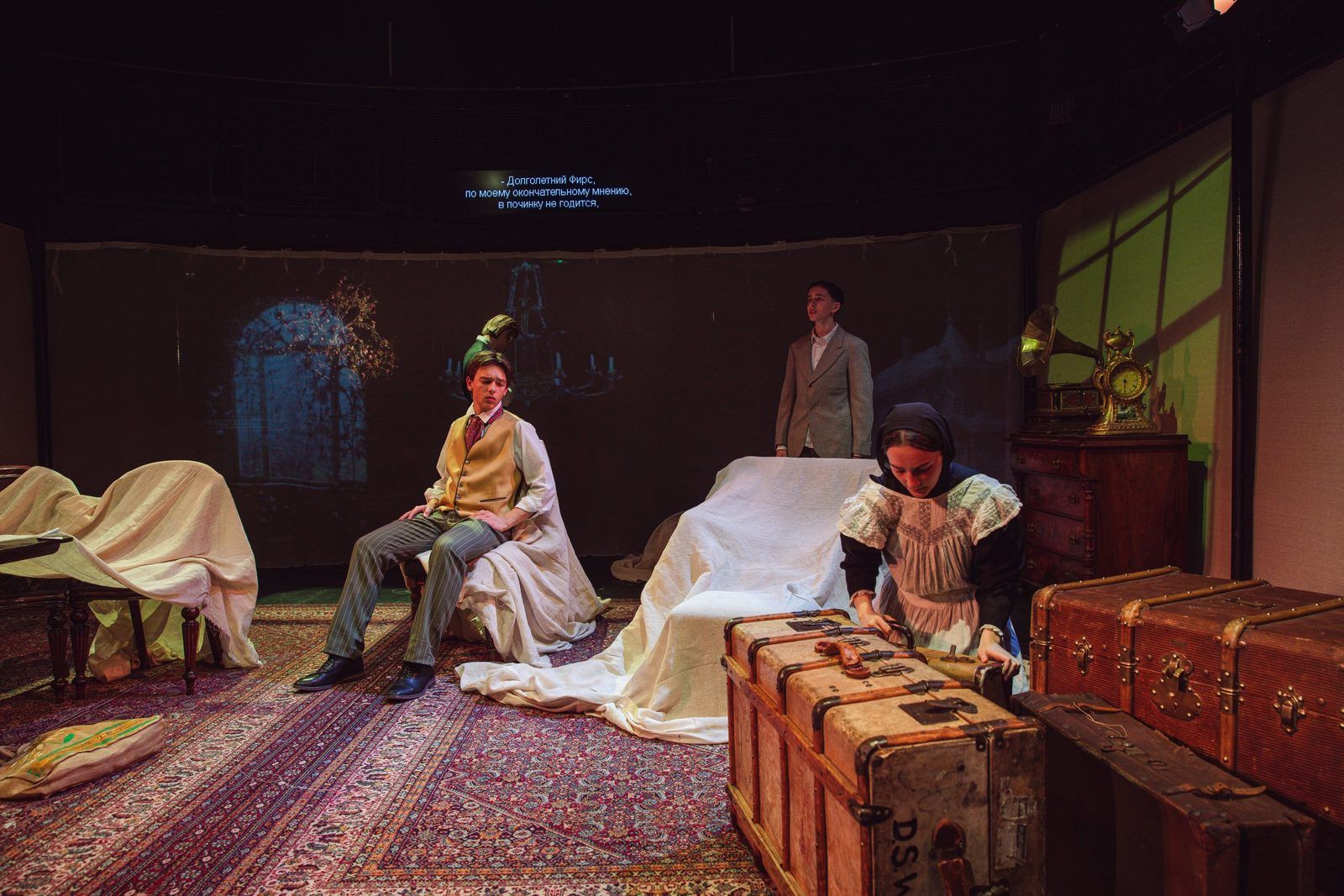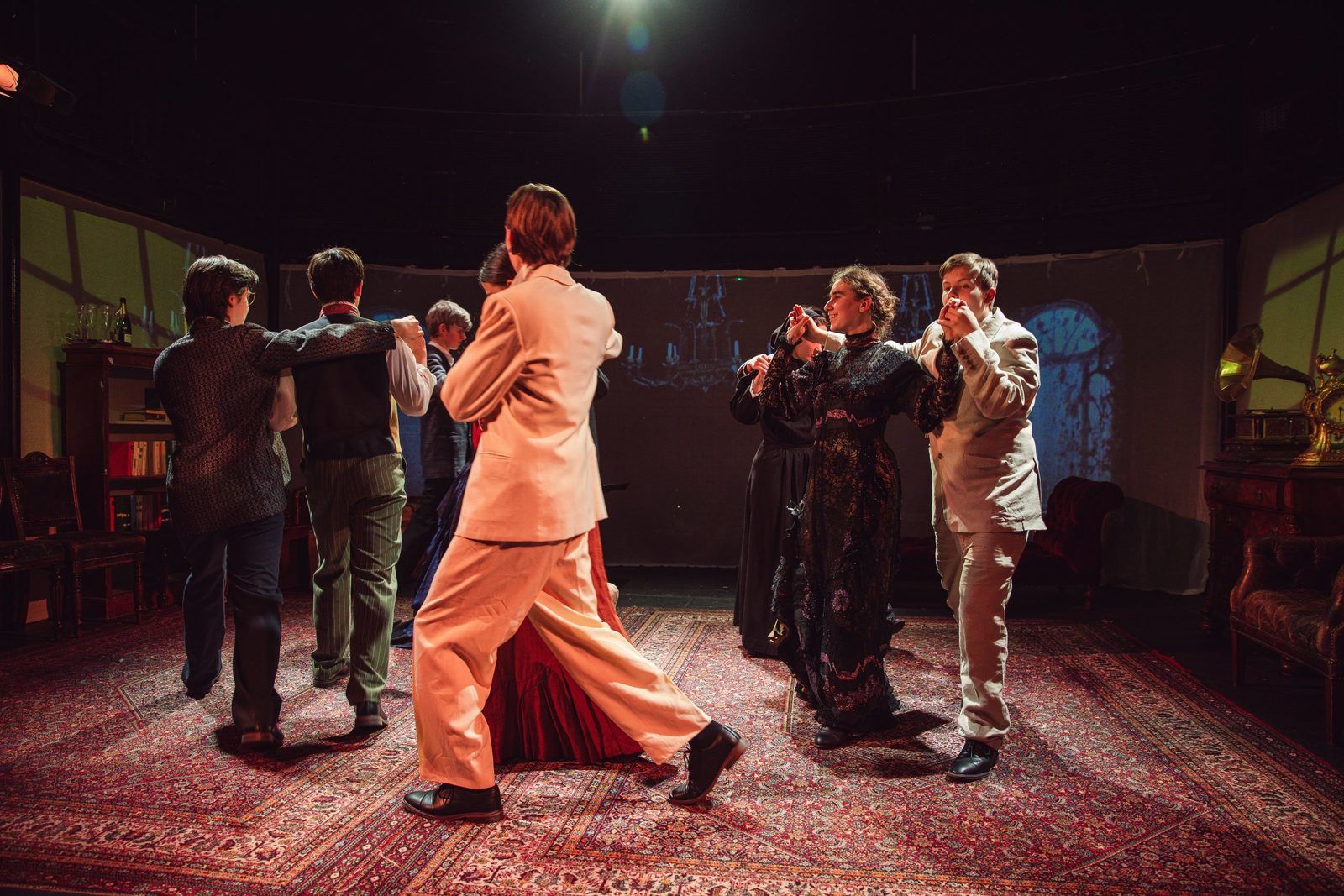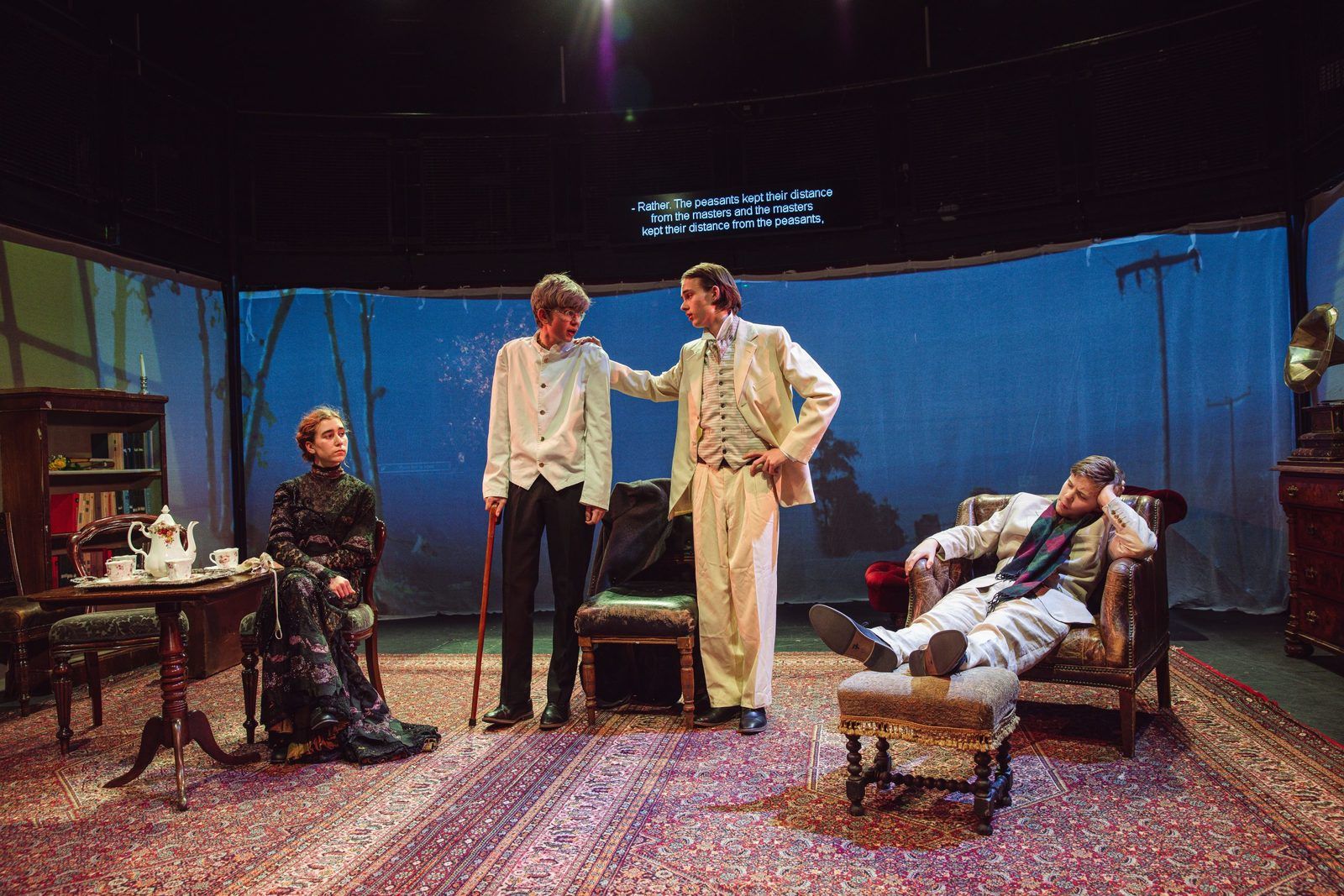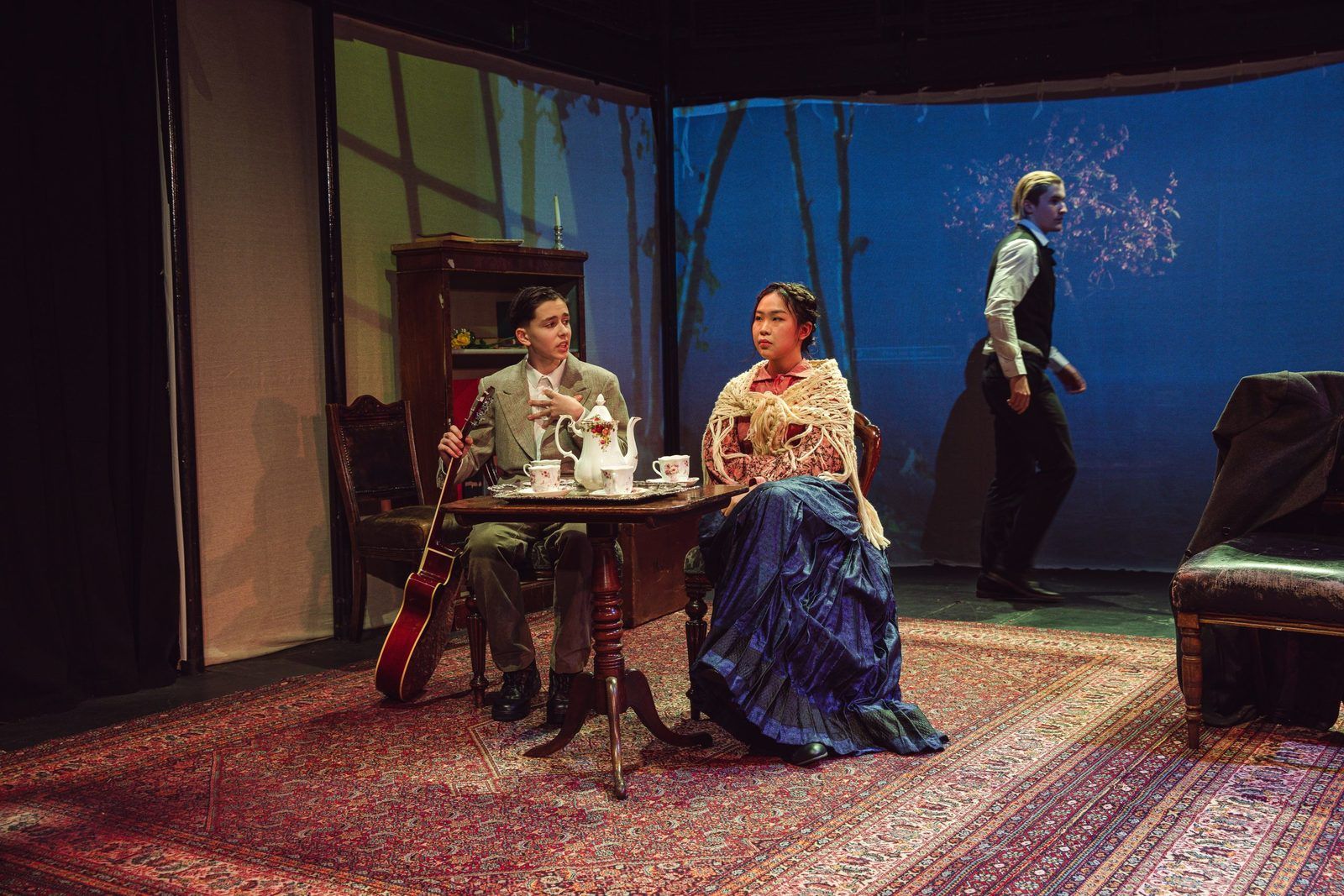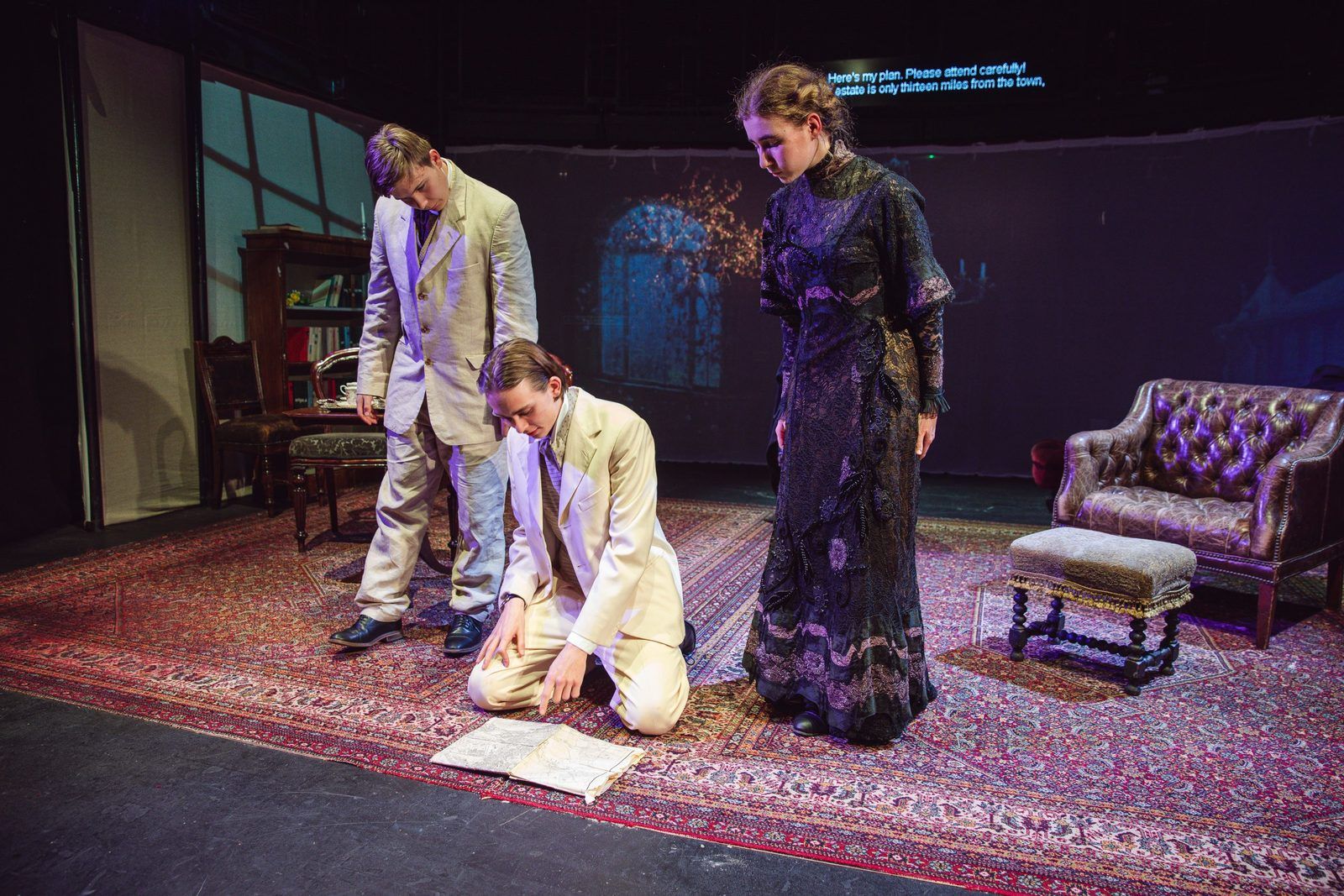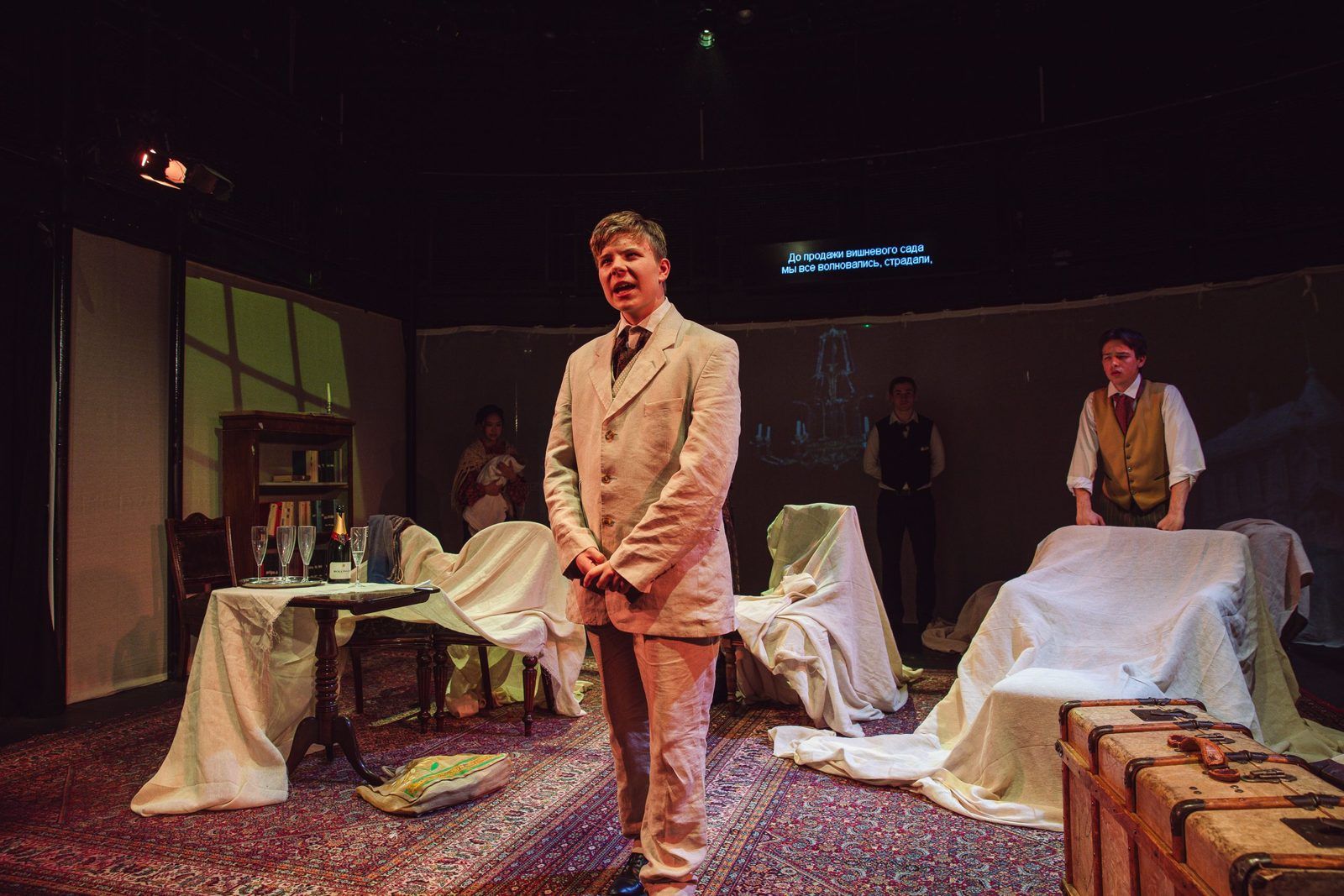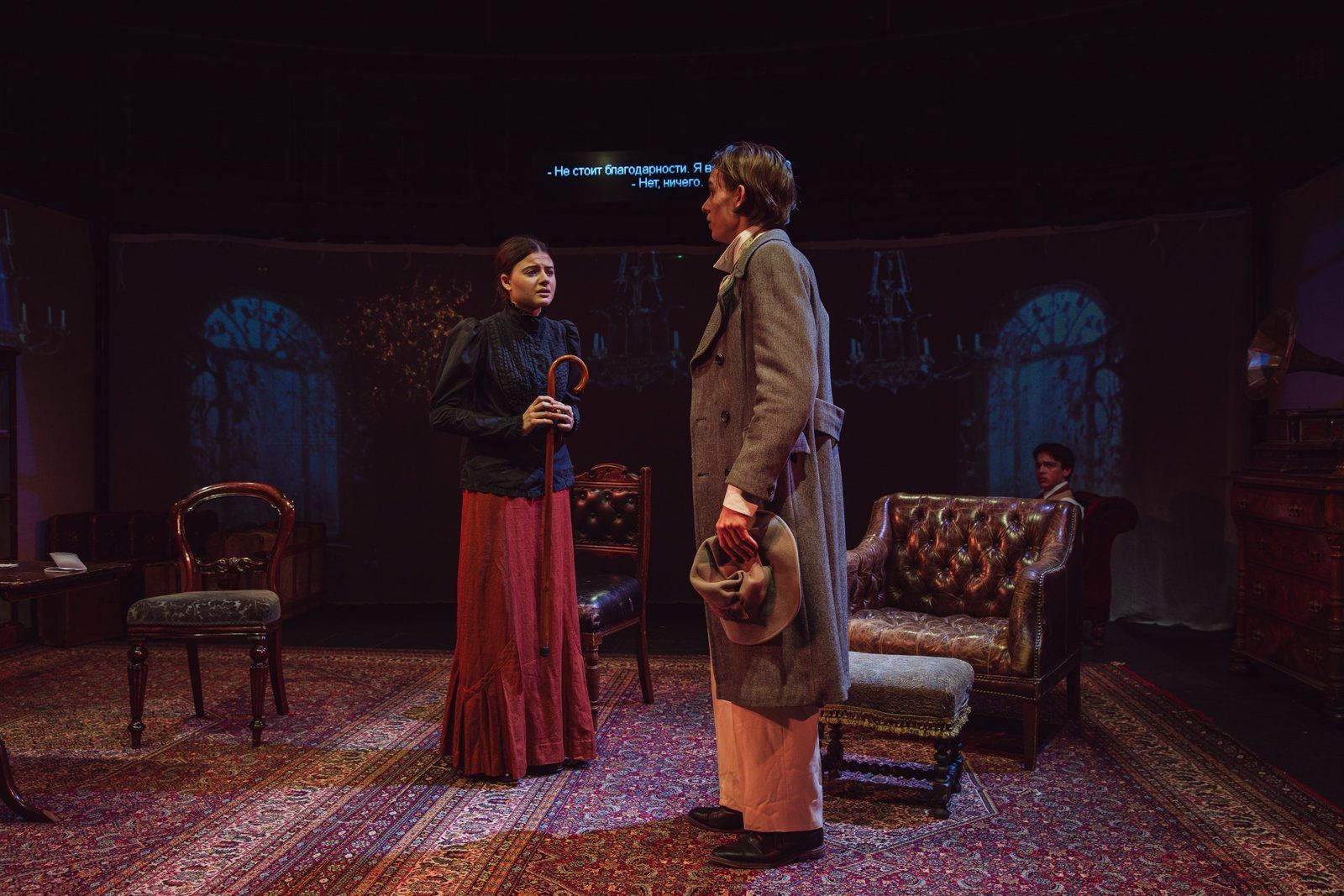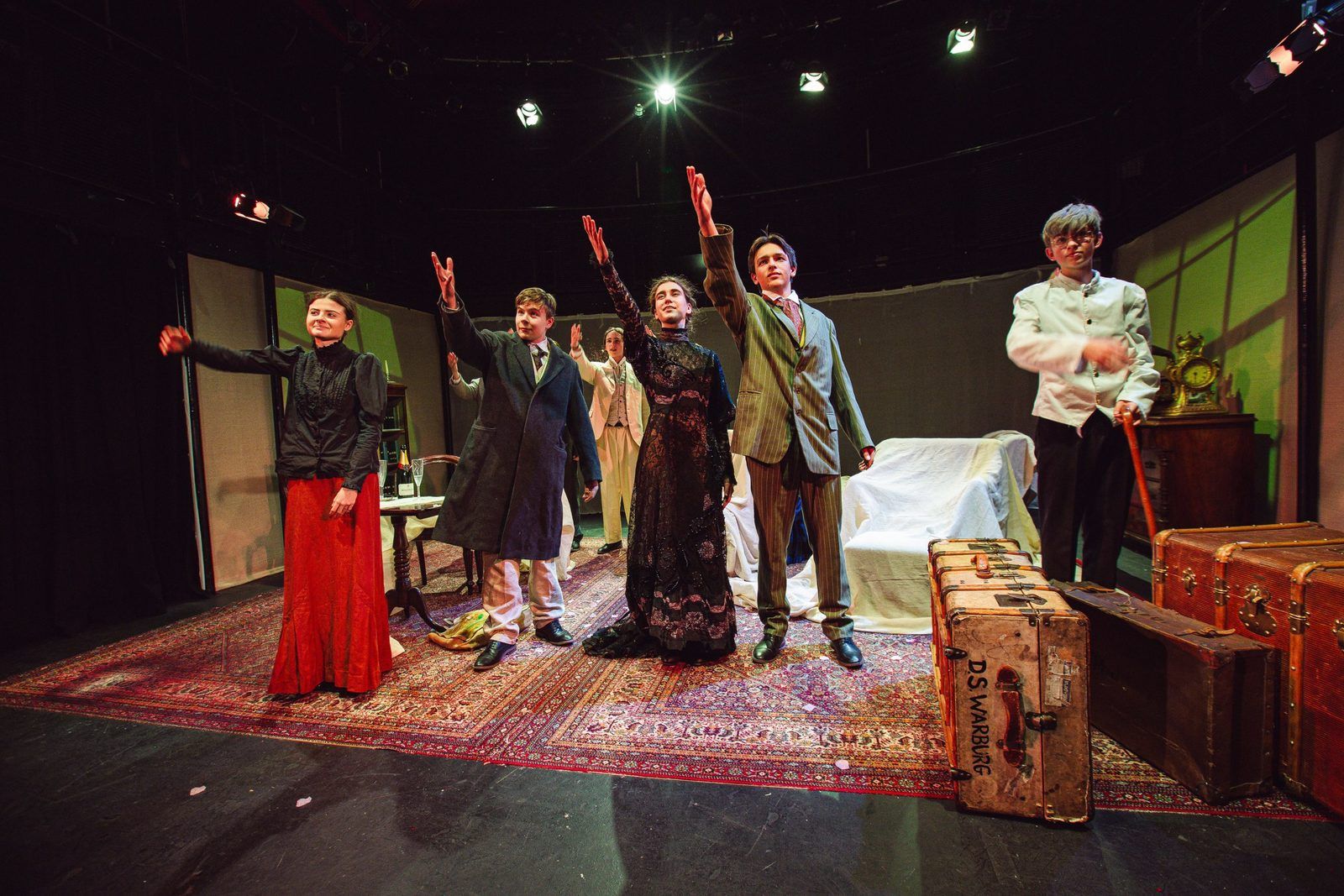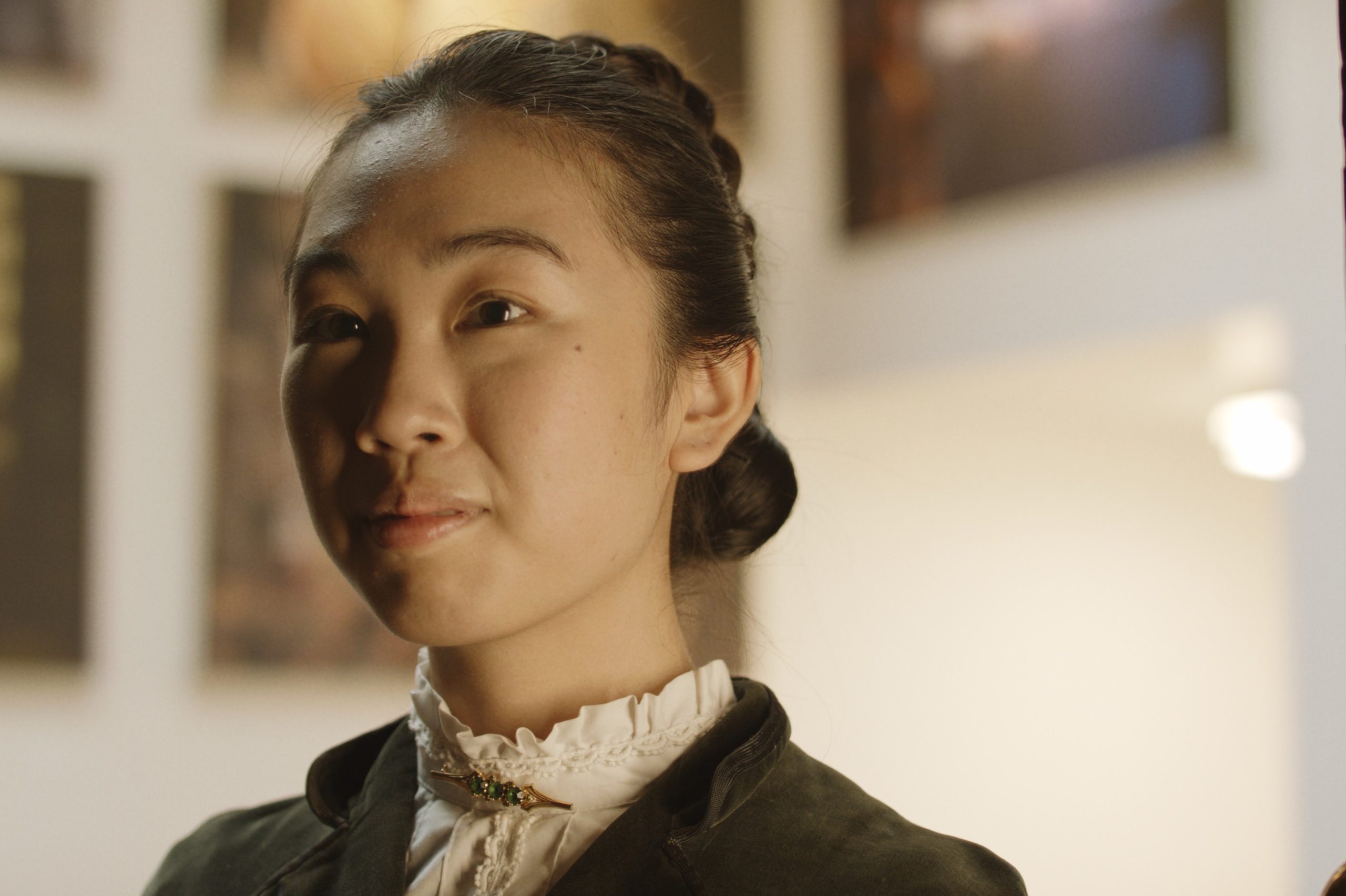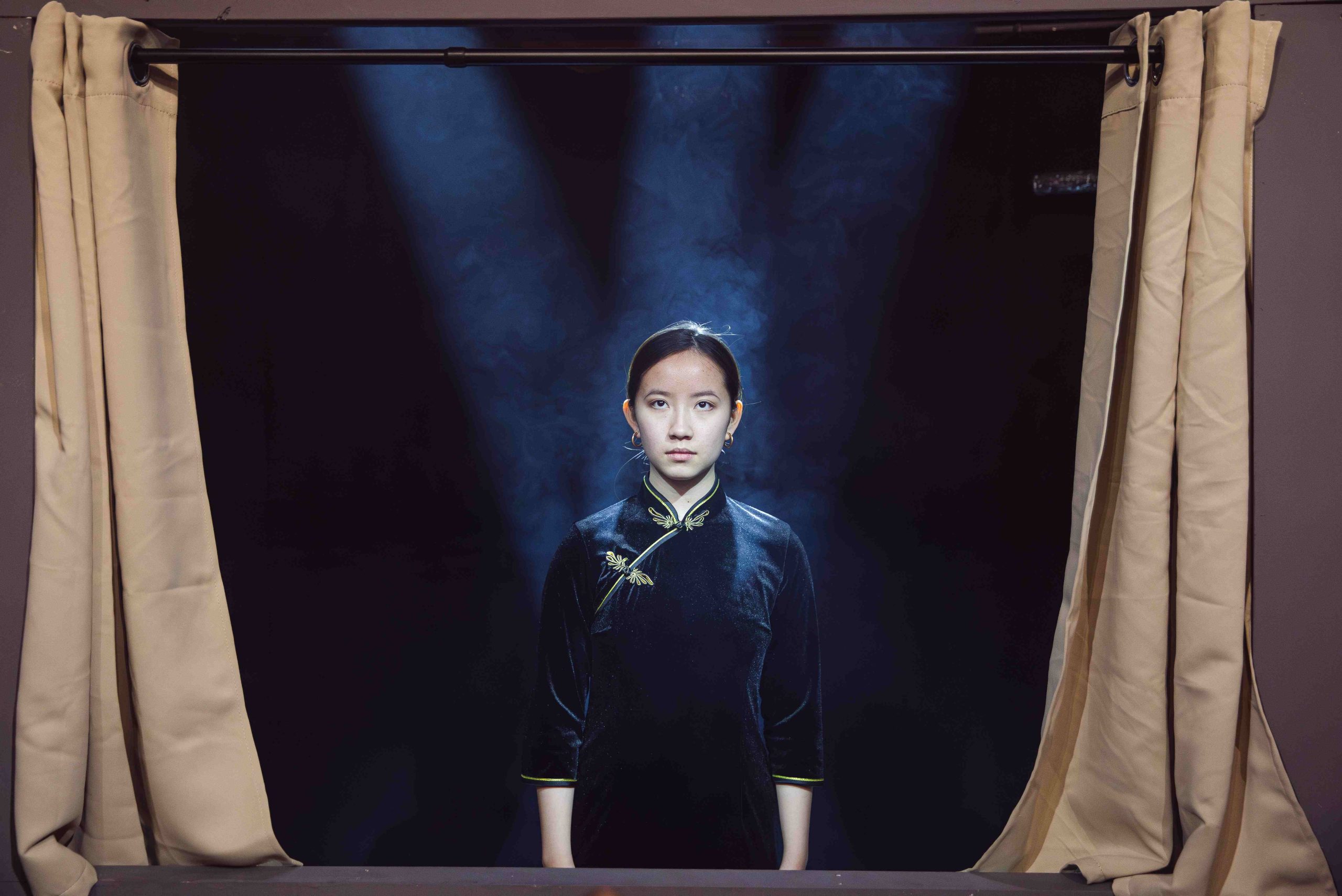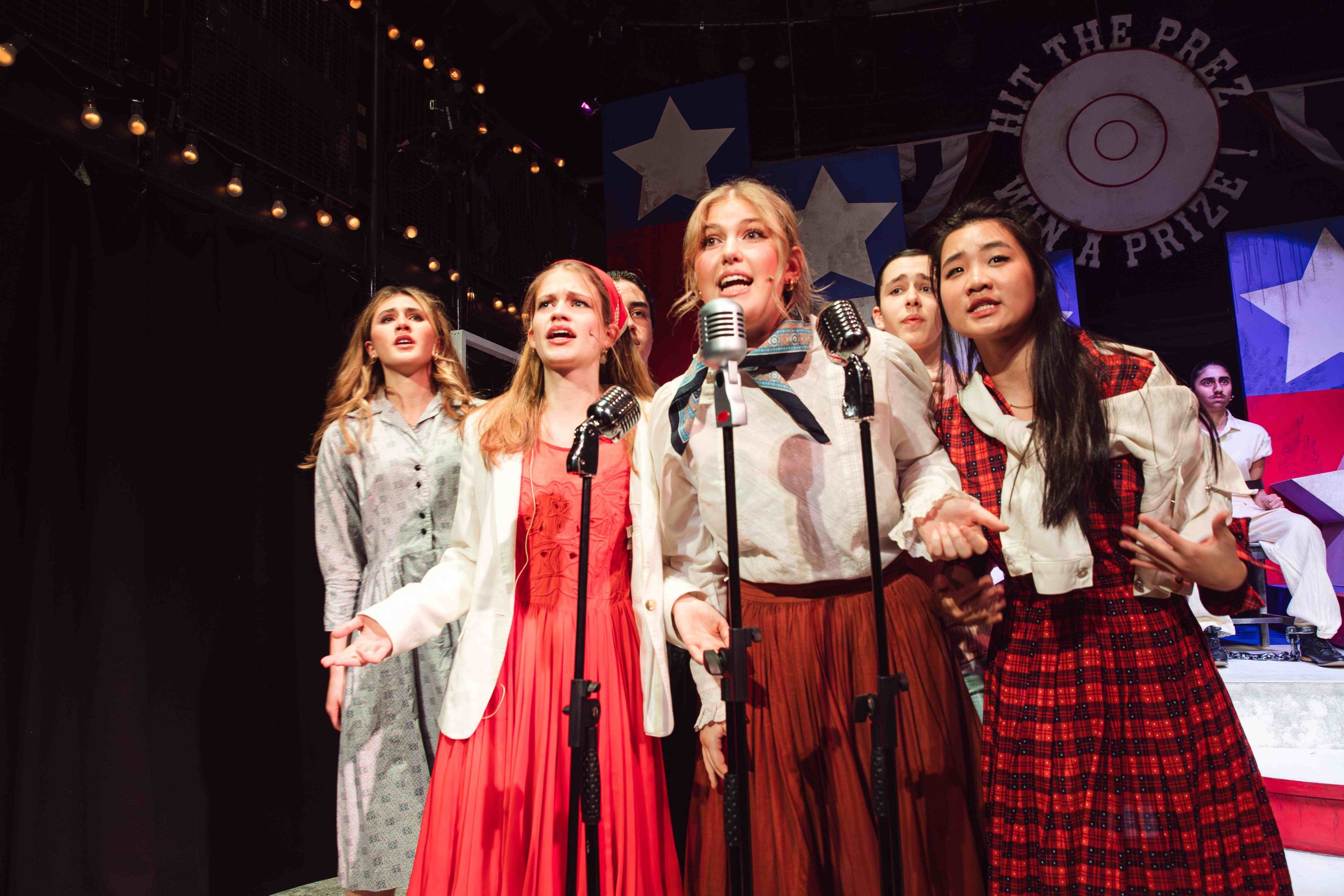Pupils from Westminster and Harris worked together to stage a bilingual performance of Chekhov’s The Cherry Orchard
Devised as a collaboration between Westminster’s Drama department and Modern Languages department, the school’s first annual bilingual performance took on one of modern theatre’s classics, The Cherry Orchard, Chekhov’s final play which dramatises the aftermath of the 1861 ‘Edict of Emancipation’ and the decline of the Russian aristocracy at a time of sweeping societal change.
The performances in the Millicent Fawcett Hall in March, were staged equally in two languages, with the first half in Russian, with English surtitles, and the second half in English, with accompanying Russian titles.
Although the cast and crew of pupils from Westminster and Harris Westminster Sixth Form included existing Russianists, including some for whom Russian is a familial language, for others this was an introduction to the language.
Nick Massey, Head of Russian and the show’s dramaturg, said: “Preparing for a bilingual production presented our pupils – especially our non-native Russian-speakers – with a significant challenge. Learning whole monologues in Russian required a level of commitment that most of them had never encountered, and it surely tested them to their limits. The primary goal during rehearsals was to get ‘off book’, and this took longer for some than others. Yet with encouragement (and a couple of stern, well-timed reality checks from the director), our pupils dealt admirably with the challenge. Once lines had been learned, pupils began to embody their roles with more confidence, putting their own spin on Chekhov’s already quirky characters. The end result was a fully collaborative production, our newly-fledged actors stepping in to the tragicomic story with gusto, playing off each other with authenticity, integrity and understanding.”
In his programme notes, the play’s director, the School’s Director of Drama, Chris Whyld, said: “During the rehearsal process, to note the differences in the characterisations, the interactions, and the use of the voice and body, depending upon the language being spoken, has been a revelation. At an early rehearsal, when I first heard The Cherry Orchard being performed in its intended language, I was struck by the thought, ‘Of course, it is supposed to be in Russian!’ This is not to say that an English performance doesn’t have power, and that we can’t reveal the complexities and nuances of Chekhov’s tragicomedy, in a ‘foreign’ language. But the Russian brings an authenticity and explores emotional depths, with which, perhaps, other languages can’t compete. This challenge, to perform a sophisticated and difficult play in two languages, was one I set with a degree of trepidation. But, as I have come to learn, the pupils of Westminster and Harris Westminster like to be given very difficult tasks and then set about conquering them.”
The process of the play – to move from the first read-through to three nights of performances proved intense, although ultimately rewarding for cast and crew.
Luke (Upper Shell, WW), producer and technical director, said: “Bringing The Cherry Orchard to the Westminster stage was always going to be a huge project — even more so when doing it bilingually, and at a very busy time in the school’s calendar. A huge amount of work went into making it happen – especially finding the required number of Russian speakers and crew willing to participate. We hope the mammoth five-month endeavour produced something both unique and worth watching!”
Will (Remove, WW), who took on the role of Lopakhin, said: “As my first time in a serious production, The Cherry Orchard did not disappoint! It was certainly a challenge at first, especially acting bilingually, but with some time I became more confident in my acting, and came to thoroughly enjoy it. Acting at school was a magical experience and I only wish I’d discovered it sooner!”
Sonya (HWSF), who performed as Varya, said: “Performing Chekhov’s timeless masterpiece, The Cherry Orchard, I was immersed in the early 20th century Russian culture as the transition from wealth to poverty progressed throughout the play. The symbolism of the family slipping into poverty reflects the hardships people of Russia faced during this time, and this made me feel the change of each of the characters’ personal struggles and desires as the play progressed. Playing Varya has given me the opportunity to grapple her complex emotions and captivate the audience, inviting them into Chekhov’s world.
And the effort and skill was not lost on the audience. Head Master, Dr Gary Savage, said: “It takes some doing for school pupils to evoke the atmosphere and complexity of that play, and to sustain the mood, tone and themes across two hours – in two languages! What an impressive achievement. I also thought the staging and design were terrific, as well as the accompanying music. What a treat. The audience were rightly impressed, and I hope the pupils enjoyed it. They would have learned much from the rehearsals about drama, Chekhov, the challenges and opportunities of translation, the beauty of Russian… what a treat for them, and us.”
Related News Stories
